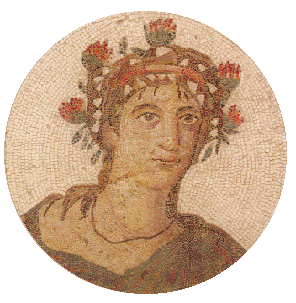Gluttons & Gourmands: Marcus Gavius Apicius
December 15, 2011 § Leave a comment
No accounting of renowned gourmands would be complete without a nod to the legendary gastronomic habits of Marcus Gavius Apicius, who rose to prominence in Rome during the reign of Tiberius in the early years of the first century A.D. Many of the details of his life have been obscured by time, but Apicius is now chiefly remembered through the references to him by contemporaries.
 The great historian Pliny chronicled some of Apicius’s epicurean exploits, describing him as “born to enjoy every extravagant luxury that could be contrived.” Pliny noted his enthusiastic endorsement of flamingo’s tongue (“a specially fine flavor”) and wrote of his obsessive quests to produce heightened culinary experiences. He praised Apicius for the then-novel idea to feed pigs dried figs before forcing them to drink honeyed wine and then slaughtering the soused animals. Apparently, his efforts were not in vain; the results were famous throughout the ancient world. The definitive work on Apicius, On the Luxury of Apicius, was written by the Greek grammarian Apion, but is now lost to the ages.
The great historian Pliny chronicled some of Apicius’s epicurean exploits, describing him as “born to enjoy every extravagant luxury that could be contrived.” Pliny noted his enthusiastic endorsement of flamingo’s tongue (“a specially fine flavor”) and wrote of his obsessive quests to produce heightened culinary experiences. He praised Apicius for the then-novel idea to feed pigs dried figs before forcing them to drink honeyed wine and then slaughtering the soused animals. Apparently, his efforts were not in vain; the results were famous throughout the ancient world. The definitive work on Apicius, On the Luxury of Apicius, was written by the Greek grammarian Apion, but is now lost to the ages.
Fortunately, some of Apicius’ most profligate and memorable gestures have been preserved for posterity. Though he lived in Minturnae, not too far from present-day Naples, Apicius once commandeered a boat to visit the Libyan seacoast on rumors that the shrimp there were larger and tastier than anywhere else. As soon as the boat arrived (and at no small cost), local fisherman approached the boat, offering their wares, including many shrimp. However, Apicius was so disappointed at the size of the shrimp that he left almost immediately, not even setting foot onshore.
The last days of Marcus Gavius Apicius are particularly indicative of his dedication to the life of the gourmet. After a life of extravagance, spent mostly on entertaining Roman aristocracy (Seneca reports that he spent more than a 100 million sestertii on equipping his kitchen alone), Apicius found his personal fortune to be in dire straits, with debts mounting. Upon the discovery that his finances totaled only 10 million sestertii, Apicius poisoned himself rather than face a life of relative poverty and without the culinary delights that had defined his immoderate life.
Apicius has long been linked to the De Re Coquinaria (“The Art of Cooking”), a collection of recipes from the heyday of the Roman Empire that many maintain is the oldest cookbook extant. The book contains ten books, which are arranged according to the type of dish and included recipes meats, vegetables, and seafood, among others. The recipes give little information about quantity or cooking technique, but do offer a wealth of information about the eating habits of the ancient world. (Garum, a fermented fish sauce that seems remarkably similar to the contemporary Southeast Asian counterpart, figures prominently in many recipes.) There is some confusion about whether Marcus Gavius Apicius or one of his later namesakes authored and/or compiled the cookbook, but even to this day, Apicius still elicits a testament to the pinnacle of earthly pleasures.
Leave a comment